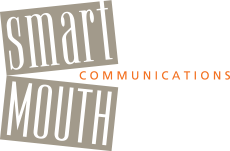For some reason, even the smartest, most seasoned professionals lose all sense of perspective and proportion – e.g. time, place, purpose – when they have to approach a microphone. I have seen the mere invitation to make a statement, or speak at a press conference, or make welcoming remarks escalate into nothing short of the need to draft a 45-minute inaugural address.
For example, I recently had a client who was asked to make brief pre-dinner welcoming remarks to a visiting industry group. Knowing full well there would be other presentations during dinner that evening, this client and his handlers still came up with a full-blown speech that not only welcomed everyone, but addressed the biggest challenges facing that particular industry. It was meant to be meaningful for the audience, but it was long, philosophical, and dissertation-like. Great stuff for a keynote speech, but way overboard for “brief welcoming remarks.” I offered to help, and we cut his remarks back to be much shorter and somewhat more entertaining, although still relevant.
Another example was a client who was in the early stages of a multi-year project to build a new, much-anticipated state-of-the-art facility. At the point in the design process when the client was preparing to announce the selection of the firm that would create the look and feel of just the interior space, I caught wind that the CEO was planning to say this: “Today is the culmination of 10 years worth of dreaming and planning and hard work by many. We are so proud and thrilled . . . ”
Huh? Really? To see if I could awaken a sense of proportion, I gently asked, “um, well, so, if you say that now, what will you say at the ground-breaking when construction begins, or at the ribbon-cutting for the grand opening? Don’t you want to save the 10-year dream-come-true theme for one of those occasions?”
Here are some tips to help you keep it all in perspective and maintain a sense of proportion:
1. Think about the audience and the occasion. Why is the audience in the room and what do they care about, want, and/or expect? How patient and attentive are they likely to be? (In fact, how patient and attentive is any audience?)
2. Know your role for the occasion. Are you the only speaker or one of many speakers? What specifically were you asked to do?
3. Know your “job” for the occasion. Are you introducing, informing, inspiring, entertaining? What verb describes your primary communications task for the occasion?
4. Finally, if you are asked to introduce a speaker, confer with the speaker about how they like to be introduced or what they prefer you say – or not say – about their topic. Find out what will suit the speaker’s personal preference and topic, don’t simply ask for and then read a bio because “that’s what people do” and don’t dive into someone else’s topic in your intro!
You’ll be just fine if you keep the audience in mind, stick to your assigned role, and do your “job” – nothing more, nothing less! Stay in your lane.
- New Agey Advice for Nervousness - November 3, 2022
- Your Passion Can Go a Long Way Toward Building Connection - October 10, 2022
- Keep stage fright a private matter while you’re speaking on a public stage! - August 11, 2022



